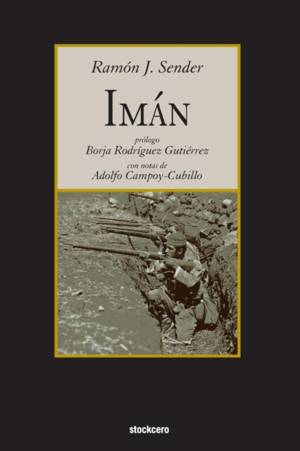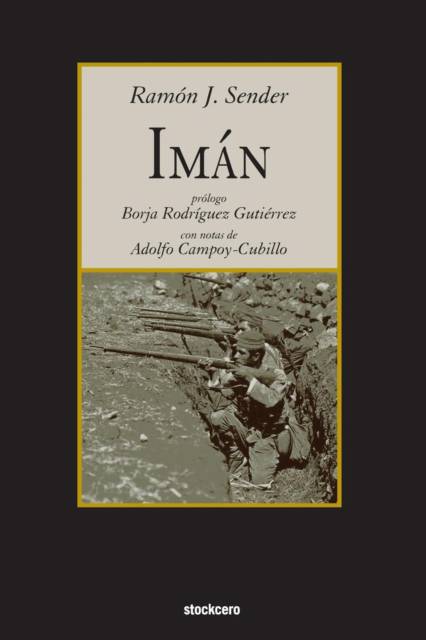
Bedankt voor het vertrouwen het afgelopen jaar! Om jou te bedanken bieden we GRATIS verzending (in België) aan op alles gedurende de hele maand januari.
- Afhalen na 1 uur in een winkel met voorraad
- In januari gratis thuislevering in België
- Ruim aanbod met 7 miljoen producten
Bedankt voor het vertrouwen het afgelopen jaar! Om jou te bedanken bieden we GRATIS verzending (in België) aan op alles gedurende de hele maand januari.
- Afhalen na 1 uur in een winkel met voorraad
- In januari gratis thuislevering in België
- Ruim aanbod met 7 miljoen producten
Zoeken
Omschrijving
To read Iman (1930) by Ramon J. Sender is to sail into a vertiginous trip within the darkest aspects of the human being. A man, a soldier striving to survive along endless days and nights in a desert landscape, without further protection besides his scarce strengths, surrounded by death, violence, horror. A shockingly compelling novel, both harsh and beautiful, written in a prose that attains lyricism heights seldom seen in war novels, that has the power to immerse the reader into the nameless world that lies beyond the madness frontier. With this, his first novel Ramon J. Sender (Spain 1901- USA 1982) immediately became one of the most important XX Century Spanish novelists. Iman, a novel full of aggravation provoked by the senseless powers that ruled Spain, sympathetic towards those who died, accuser against those who took advantage of the young lives of the Spanish people, played a key role in the Spanish monarchy fall and the subsequent arrival of the Republic. But its literary and universal claim values make it stand as the chronicle of the unleashed barbarism inherent to each and every war. Almost a century after the narrated episodes it still makes for a reading that leaves no room for indifference. In this edition the introductory study by Borja Rodríguez Gutiérrez and the footnotes allow the modern reader to grasp and enjoy the Sender text in its full masterpiece magnitude.
Specificaties
Betrokkenen
- Auteur(s):
- Uitgeverij:
Inhoud
- Aantal bladzijden:
- 288
- Taal:
- Spaans
Eigenschappen
- Productcode (EAN):
- 9781934768747
- Verschijningsdatum:
- 11/05/2014
- Uitvoering:
- Paperback
- Formaat:
- Trade paperback (VS)
- Afmetingen:
- 152 mm x 229 mm
- Gewicht:
- 426 g

Alleen bij Standaard Boekhandel
+ 119 punten op je klantenkaart van Standaard Boekhandel
Beoordelingen
We publiceren alleen reviews die voldoen aan de voorwaarden voor reviews. Bekijk onze voorwaarden voor reviews.









